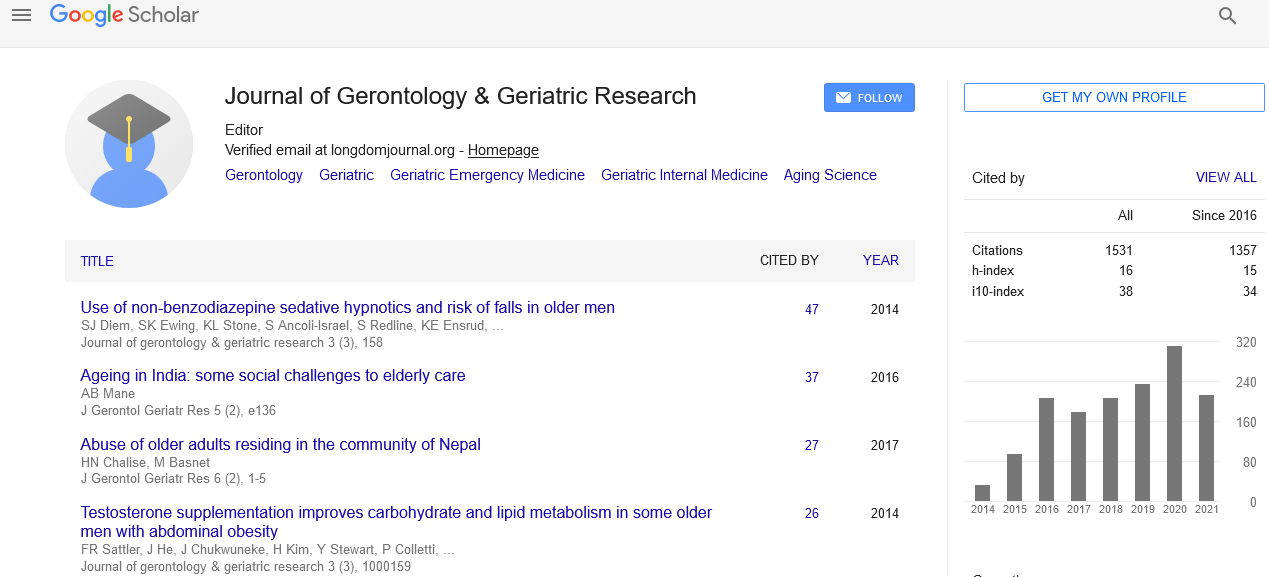PMC/PubMed Indexed Articles
Indexed In
- Open J Gate
- Genamics JournalSeek
- SafetyLit
- RefSeek
- Hamdard University
- EBSCO A-Z
- OCLC- WorldCat
- Publons
- Geneva Foundation for Medical Education and Research
- Euro Pub
- Google Scholar
Useful Links
Share This Page
Journal Flyer

Open Access Journals
- Agri and Aquaculture
- Biochemistry
- Bioinformatics & Systems Biology
- Business & Management
- Chemistry
- Clinical Sciences
- Engineering
- Food & Nutrition
- General Science
- Genetics & Molecular Biology
- Immunology & Microbiology
- Medical Sciences
- Neuroscience & Psychology
- Nursing & Health Care
- Pharmaceutical Sciences
Adjusting for the cognitive effects of normal aging in the work place
International Conference on Geriatrics & Gerontology
July 08-10, 2014 DoubleTree by Hilton Hotel Chicago-North Shore Conference Center, USA
Leathem Janet J M and Bridget Burmester
Scientific Tracks Abstracts: J Gerontol Geriat Res
Abstract:
Background: Currently 14% of people in NZ are aged 65 years or older, with that figure projected to increase to almost 25% of population by 2026. One fifth of these people are currently in employment and this is projected to increase to 35% by 2020. By 2036, people 65+ will represent 9-15% of labour force of the population (Statistics NZ 2012). The largest growth will be in the next 20 years. These figures are similar to those in the Western world. Increasing age is associated with a number of cognitive changes. This will mean that people over 65 years will be working with attention, learning, memory and information speed that is slower or lower than in their earlier years - they will be wiser but slower. This has wide implications for the work force. Aims: To examine the experience of cognitive change in adults aged 60-79 and to consider strategies to compensate for the changes in the work place. Method: An on-line survey of the nature, extent and stress caused by subjective cognitive complaints. Results: The 185 respondents were most distressed by forgetting - telephone numbers and facts, that they?ve already done something, how to do or operate things, what they?ve been told, seen or read, what they were doing, where they had put things, and not recognising people. Discussion: Possible approaches to dealing with cognitive effects of aging will be discussed.
Biography :
Leathem Janet J M is Professor of Neuropsychology and Director of Clinical Psychology Training at Massey University ? Wellington, New Zealand. She also works in as a consultant clinical psychologist and neuropsychologist in the Psychology Clinic located on campus. Her research is predominantly with doctoral students in the areas of neuropsychology, issues involved with normal ageing, and traumatic brain injury. She has written more than over a 100 scientific articles and book chapters and is currently working with the Public Health researchers on a nationwide study on the neuropsychological effects of exposure to pesticides.


